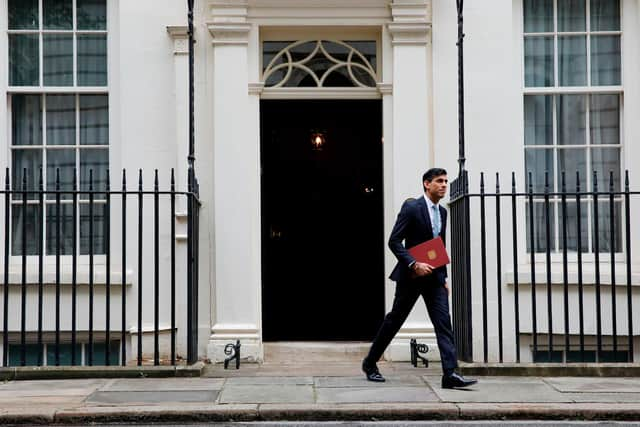UK economy officially crashes into recession for first time in 11 years
and live on Freeview channel 276
The Office for National Statistics (ONS) is expected to confirm the mammoth second quarter contraction, the worst in western Europe, and the UK’s nosedive into recession after a 2.2% fall in the first three months of 2020.
A recession is defined as two successive quarters of decline in gross domestic product (GDP), which has not been seen in the UK since 2008 and 2009 during the financial crisis.
Advertisement
Hide AdAdvertisement
Hide AdIt comes after ONS data showed around 730,000 UK workers have been removed from the payrolls of British companies since March when the coronavirus lockdown began in a sign of the toll taken on the economy by the pandemic.


Employment also dropped by the largest amount in a quarter since 2009 between May and June.
Economic uncertainty caused by the pandemic means Chancellor Rishi Sunak may delay his autumn Budget, according to the Financial Times. The paper said fears of a second wave of Covid-19 had led Mr Sunak to consider delaying major public spending decisions until after the crisis, most likely until the spring.
Despite the record-breaking GDP slump expected for the second quarter, experts will be keenly watching the monthly figure for June amid predictions it will show a sharp 8% bounce-back as lockdown restrictions eased further.
Advertisement
Hide AdAdvertisement
Hide AdThis follows a far-lower-than-expected 1.8% rebound month-on-month in May.
Attentions have now turned to the recovery, in particular after the Bank of England said last week that, while it expects the downturn to be less severe than first feared, the UK could take longer to rebound than previously predicted.
It forecasted GDP to shrink by 9.5% this year, having warned in May over a 14% slump in 2020.
However, it dashed hopes of a V-shaped recovery, saying the economy is not expected to jump back to pre-virus levels until the end of 2021.
Advertisement
Hide AdAdvertisement
Hide AdPhilip Shaw at Investec said: “We are forecasting a monthly increase of 8.1% as more of the economy, such as ‘non-essential’ retailing, opened up in mid-June.”
He added: “July’s figures next month should contribute strongly to a material rebound in the third quarter, but the test will come in the autumn when there are no further ‘lockdown releases’ to boost the economy, some restrictions (perhaps just local) are imposed and programmes such as the furlough scheme are wound up.”